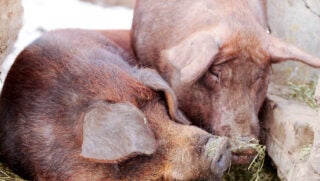Seed selection is happening right now. Brands are offering early rebate discounts and deals for early commitments. But how do you know if you are getting the best deal? That’s a question Farmer’s Business Network (FBN) set out to address.
“Every other product that we buy in our lives — whether that’s a TV or anything you might buy online or the groceries you buy every day — you can see what prices are. You can go to the store, you can go online, you can check prices, you know what store is cheaper than the other,” said Charles Baron, Co-founder and VP of Product, FBN. “Seed is a $12 billion industry where no one puts a price out and it is basically impossible for farmers to know if they are getting a good deal.”
Through their thousands of farmer members, FBN was finally able to put some figures out there on seed. By studying members’ yield information, seed invoices, and performance in varying soil types and weather conditions, FBN has released the first ever Best Corn Seed Brands ranking report.
More than 42 brands were ranked based on how well they yield, the prices they charge, how loyal farmers are to those brands, how well they work on poor soils, and how their yields performed over time. FBN did the ranking state by state so farmers can see which brands are really working the best in their area.
“What we want to help growers with is to create an independent source of information, that is objective, unbiased, and not coming from the industry, retailer, or manufacturer,” Baron said. “You can see how a product is actually performing on farms in your area and then use that to make a better seed choice.”
How does a farmer get his or her hands on this information? Once a grower becomes a member and shares his or her farm’s data, FBN will analyze the farm using precision or invoice data, will benchmark costs compared to other growers in the area, and will see how effective the brands were based on soil types. Then they will find the best products for that farm.
Baron said members have seen the value of that information to be anywhere on average from 6 bushels per acre to 25 bushels per acre when using the seed selection data from FBN.
Also by sharing price data — which is all anonymous — growers can see what others are paying for seed.
“This is the first time that has ever been available for farmers to actually see what seed prices actually are in their markets after all the discounts the dealers charge, after all the negotiation, and the haggling which can be a total black box for farmers to know if they are getting a good deal or not,” Baron said. “We will show you price transparency.”
Baron said that alone has been an extremely popular service because it is helping farmers find the most cost-effective seeds, that have the best yield in price, and then matching those hybrids up to their fields.
FBN also has launched a direct service where they will go out and find the lowest cost inputs, like chemicals and fertilizers, they can source around the country and then ship that product to your farm.
“That’s been enormously popular because again it provides transparency, it gives people a clean, trustworthy experience, its’ very easy to use, and we have been able to save farms anywhere from 10 to 40, 50 percent on the entire chemical purchase by doing that,” Baron said
Baron says every farm really should check both brand performance and price performance when making seed selection.
“You wouldn’t’ buy a car without checking Kelley Blue Book and kind of knowing what the market is,” Baron said. “Farmers really should do that in seed as well and we are standing by and helping thousands of our members do that this year.”



